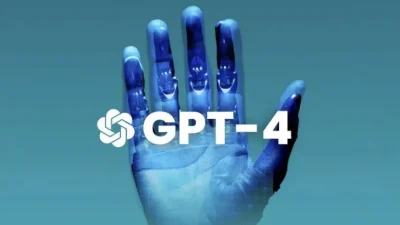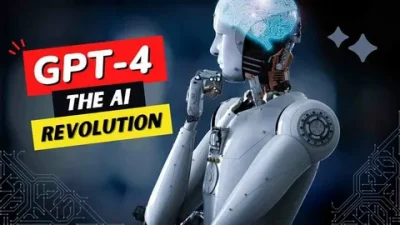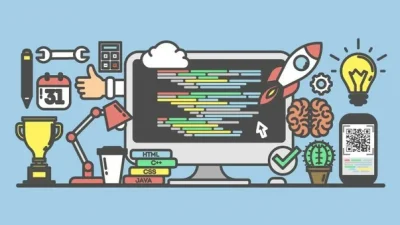
The digital landscape is evolving rapidly, and AI-powered tools are at the forefront of this transformation. One of the most notable advancements is the launch of ChatGPT Agent, a new autonomous assistant developed by OpenAI. Unlike traditional AI chatbots, ChatGPT Agent is designed to function independently, streamline workflows, and adapt intelligently to user needs. This article explores what makes ChatGPT Agent unique, how it can be applied in different industries, and why it represents a major step forward in AI-driven productivity.
Before diving deeper into its features and impact, it’s useful to highlight the core aspects that make ChatGPT Agent stand out. These elements demonstrate how it differentiates itself from previous iterations of conversational AI:
-
Autonomous task execution without constant user input;
-
Integration with multiple platforms and third-party services;
-
Enhanced personalization through memory and context retention;
-
Scalable adaptability across business and personal applications.
With these qualities in mind, let’s break down the role of ChatGPT Agent across several domains and analyze how it redefines the meaning of an intelligent assistant.
Evolution of AI Assistants and the Rise of ChatGPT Agent
The journey of AI assistants began with simple rule-based systems capable of answering predefined questions. Over time, advances in natural language processing and deep learning brought us tools like Siri, Alexa, and the early versions of ChatGPT. These systems were reactive—they responded only when prompted and lacked autonomy.
ChatGPT Agent represents the next stage in this evolution. It builds on the conversational depth of GPT models while adding autonomous capabilities. Instead of waiting for direct instructions, it can proactively take actions, track tasks, and provide updates without constant supervision. This autonomy makes it more than a chatbot; it is a decision-making digital partner.
The introduction of memory and contextual awareness also elevates the user experience. ChatGPT Agent can remember past interactions, refine its outputs, and align with long-term goals. This makes it highly adaptable for professionals who require continuity and precision in their workflows.
Key Features of ChatGPT Agent
At the core of ChatGPT Agent is its ability to perform tasks beyond answering questions. It blends conversational intelligence with practical execution, making it a versatile tool for businesses, creators, and everyday users.
Some of its most important features include contextual memory, which allows it to recall user preferences and past interactions. This capability leads to more personalized and efficient responses over time. Another defining feature is its multi-platform integration, enabling the agent to connect with calendars, emails, project management tools, and customer relationship systems.
Its proactive task management functionality means the assistant can remind users of deadlines, schedule meetings, or even draft reports without explicit step-by-step instructions. For companies, this results in reduced manual workload and increased efficiency.
Finally, ChatGPT Agent emphasizes secure and ethical deployment. OpenAI has implemented safeguards to ensure responsible usage, preventing misuse and prioritizing user data protection.
Business Applications of ChatGPT Agent
Enterprises stand to gain the most from adopting autonomous assistants. By embedding ChatGPT Agent into workflows, businesses can optimize efficiency, enhance customer engagement, and streamline operations.
In customer support, ChatGPT Agent can act as a first-line responder, resolving common inquiries and escalating complex cases to human agents when necessary. This reduces wait times and increases customer satisfaction.
Marketing teams can also benefit from its content-generation abilities. The agent can draft campaign emails, generate social media posts, or perform competitor analysis. Sales departments may use it to track leads, analyze communication patterns, and prepare personalized pitches.
Project management is another domain where ChatGPT Agent excels. By integrating with collaborative tools, it can assign tasks, track progress, and remind team members about deadlines. This reduces the need for manual oversight and creates smoother team coordination.
To illustrate the range of potential applications, here is a structured overview:
| Industry | Application | Impact |
|---|---|---|
| Customer Support | Automated responses, ticket triage | Faster resolution, higher satisfaction |
| Marketing | Content creation, campaign analysis | Increased productivity, brand consistency |
| Sales | Lead tracking, personalized outreach | Better conversion rates |
| Project Management | Task scheduling, workflow automation | Improved efficiency, reduced errors |
| Healthcare | Patient reminders, data summarization | Streamlined operations, better care |
This versatility ensures that ChatGPT Agent is not just a niche tool, but a universal resource that can be tailored to the needs of diverse sectors.
Enhancing Personal Productivity
While businesses benefit at scale, individuals also find value in ChatGPT Agent’s autonomous functions. For professionals, it becomes a digital assistant that manages calendars, organizes emails, and prioritizes tasks. For students, it can provide research assistance, generate study schedules, and even draft academic summaries.
One of the most compelling advantages is the way it reduces mental load. By handling repetitive and time-consuming tasks, ChatGPT Agent allows individuals to focus on creative and strategic efforts. This shift in workload balance has the potential to improve both productivity and well-being.
In addition, ChatGPT Agent supports cross-device synchronization. Whether a user is working from a desktop, tablet, or mobile phone, the assistant ensures a seamless experience. This flexibility caters to modern lifestyles where mobility and multitasking are essential.
To better understand its role in personal productivity, consider the following practical uses:
-
Managing complex schedules with automated reminders;
-
Drafting personalized messages and emails based on context;
-
Organizing research material into structured outlines;
-
Tracking personal goals and providing motivational nudges.
By combining these functions, ChatGPT Agent evolves into a truly indispensable companion for daily life.
Ethical Considerations and Challenges
As with any advanced AI system, the deployment of ChatGPT Agent raises important ethical questions. Autonomy introduces new risks related to decision-making, privacy, and accountability. Ensuring transparency in how the assistant operates is crucial for maintaining user trust.
Data security is a primary concern. Since the agent processes sensitive personal and business information, OpenAI has emphasized encryption, strict access controls, and compliance with global privacy standards. These measures help mitigate risks while still enabling effective performance.
Another challenge lies in balancing autonomy with human oversight. While independence is a strength, it is essential to keep humans in the loop for critical decisions. OpenAI promotes a hybrid model where ChatGPT Agent handles routine tasks but escalates sensitive matters for human approval.
There is also the societal question of job displacement. Automation can reduce the need for certain roles, especially in customer service or administrative functions. However, it also creates opportunities for new positions focused on AI management, ethics, and system design.
The Future of Autonomous Assistants
Looking ahead, ChatGPT Agent is likely to set the standard for AI assistants in both business and personal contexts. Its adaptability and proactive design open the door to future developments such as deeper integration with IoT devices, advanced analytics, and real-time collaboration across global teams.
As AI continues to evolve, we may see agents capable of complex reasoning, independent negotiations, and even creative problem-solving. The boundary between human and machine collaboration will continue to blur, redefining productivity in ways we are only beginning to understand.
The widespread adoption of such technology will also push regulators and organizations to establish clearer frameworks for AI governance. Ensuring ethical, fair, and safe implementation will remain a top priority.
Ultimately, ChatGPT Agent is not just another AI product; it is a glimpse into a future where machines operate alongside humans as reliable, intelligent partners. Its design emphasizes collaboration rather than replacement, creating a vision of technology that enhances rather than diminishes human potential.
Conclusion
ChatGPT Agent marks a turning point in the evolution of digital assistants. Its combination of autonomy, contextual intelligence, and multi-platform integration makes it a powerful tool for individuals and organizations alike. By streamlining workflows, reducing cognitive load, and adapting to user needs, it has the potential to redefine how we interact with AI on a daily basis.
As the adoption of ChatGPT Agent grows, the focus will shift toward maximizing its benefits while addressing ethical and societal concerns. The balance between autonomy and oversight, personalization and privacy, automation and human creativity will shape its future. What is clear, however, is that the age of autonomous AI has begun, and ChatGPT Agent stands at its forefront.





